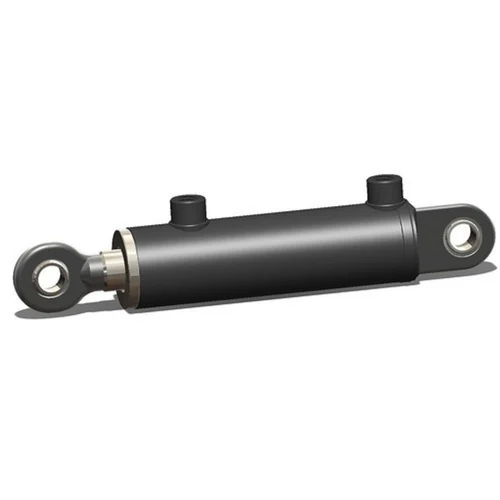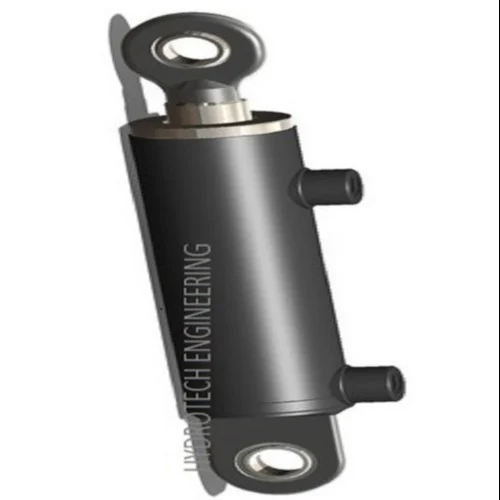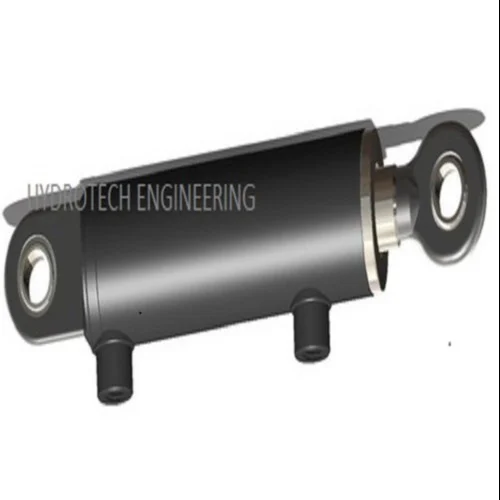Double Acting Hydraulic Cylinder
₹7,500.0
| Minimum Order Quantity | 10 Unit |
| Country of Origin | Made in India |
| Material | Mild Steel |
| Usage/Application | Industrial |
| Power | 0.8 kW |
| Maximum Stroke | 400 mm |
| Brand | Techhydro |
| Max Pressure | 280 Bar |
| Number Of Acting | Double Acting |
- Description
- Additional information
- Reviews (0)
- Q & A
- Sustainability Remark
- More Offers
- Store Policies
- Inquiries
Being a remarkable enterprise in this domain, we are engaged in offering Double Acting Hydraulic Cylinder.
| brands | Techhydro |
|---|
You must be logged in to post a review.
Q & A
Hydraulics can be considered relatively sustainable depending on how it is implemented and used. Here are some points to consider regarding the sustainability of hydraulics:
Energy Efficiency: Hydraulics can be highly energy-efficient when properly designed and operated. Hydraulic systems can convert energy from a prime mover (such as an electric motor or an engine) into mechanical power with high efficiency. However, the overall sustainability of a hydraulic system depends on the energy source used to generate the power.
Environmental Impact: The environmental impact of hydraulics primarily depends on the type of fluid used in the system. Traditional hydraulic systems use mineral oil-based fluids, which can pose environmental risks if they leak or are not properly disposed of. However, there are now more sustainable alternatives available, such as biodegradable and non-toxic hydraulic fluids made from renewable sources like vegetable oils.
Lifecycle Considerations: The sustainability of hydraulics also involves considering the entire lifecycle of the system. This includes the extraction of raw materials, manufacturing processes, system maintenance, and end-of-life disposal. Efforts should be made to minimize the environmental impact of these stages, such as using recycled materials, optimizing manufacturing processes, and promoting proper disposal or recycling of hydraulic components.
Efficiency in Applications: Hydraulics is commonly used in various applications, such as industrial machinery, construction equipment, and transportation systems. In many cases, hydraulic systems provide efficient and effective power transmission and control, resulting in overall energy savings. However, it's important to evaluate the specific application and consider potential alternatives to determine the most sustainable solution.
Maintenance and Upkeep: Proper maintenance and regular inspection of hydraulic systems are crucial to ensure their optimal performance and longevity. By implementing preventive maintenance practices, such as leak detection and repair, filtration, and fluid management, the sustainability of hydraulic systems can be enhanced. This helps minimize fluid waste, reduce energy consumption, and extend the lifespan of components.
In summary, while hydraulics can be sustainable if certain considerations and best practices are followed, it's important to assess the specific application and the environmental impact of the hydraulic system throughout its lifecycle. Advancements in fluid technology and improved system design can contribute to enhancing the sustainability of hydraulics.
General Inquiries
There are no inquiries yet.



















Reviews
There are no reviews yet.